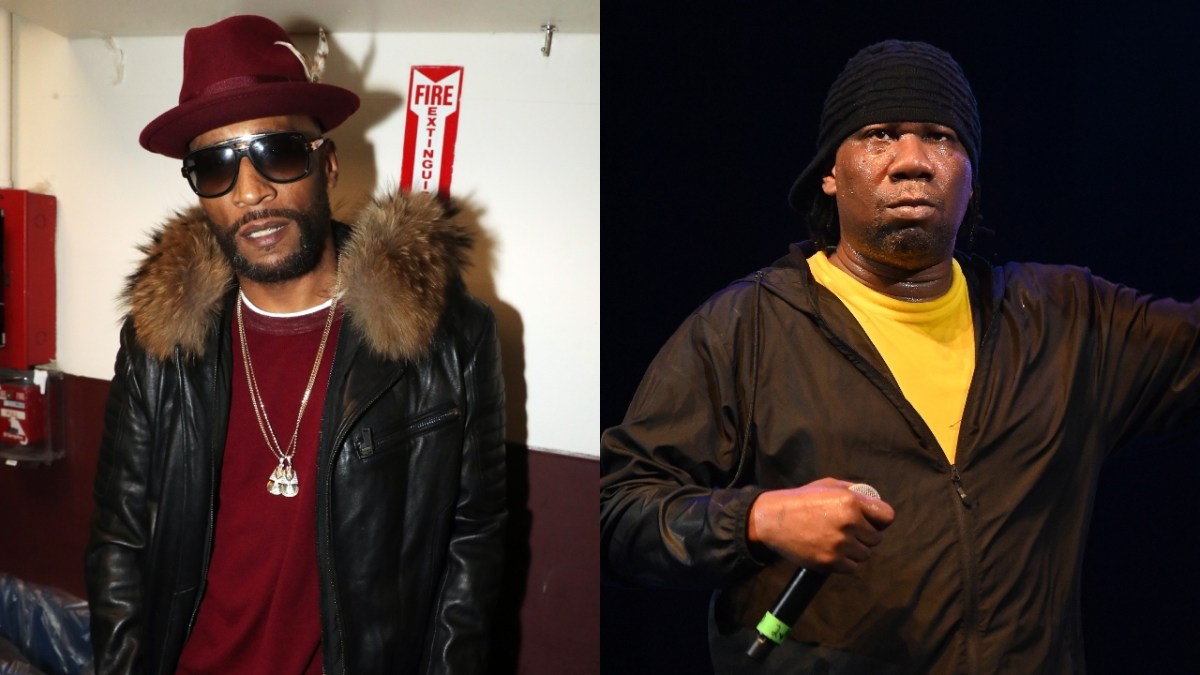Lord Jamar and KRS-One are at odds with one another regarding the cultivation and rise of Hip Hop in the early ’70s.
In mid-June, Bronx duo Dos Flakos shared a video of the Teacha giving a talk on the different ethnic groups that participated in developing the culture around rap during its formative years.
AD LOADING...
“Today, people want to downplay the Latino role in Hip Hop,” he began. “They are so stupid. Hip hop cannot— would not have existed without specifically Puerto Ricans … specifically. Cubans were here, Haitians were here, Dominican Republic was here, everybody was here. All of South America been in the Bronx, okay?
“But Puerto Ricans in particular sided with the Black folk here, and the Jamaicans were coming in as well, and this group of Puerto Ricans, Jamaicans and American Blacks made Hip Hop — not American Blacks, not Puerto Ricans, not Jamaicans; all of them made the culture.”
Hip Hop was created by Caribbean/West Indian people who migrated to America (Puerto Ricans & Jamaicans for the most part) and Black Americans in the Bronx 🙅🏽♂️ pic.twitter.com/XodMMDPLCx
— BRONX BAD BOYS (@_DosFlakos) June 17, 2024
A few days after the above clip began making the rounds online, the Brand Nubian veteran took to Instagram and shared his thoughts on multiple races being credited with the inception of Hip Hop.
“You know how we determine parentage?” he asked. “Through DNA, motherfuckers. Through DNA. Now, when I look at the DNA of Hip Hop [and] the double helix of Hip Hop, what I see is soul music, funk music. I see parents that might’ve come up in the South, who moved to the North — specifically the New York City area — and whose children came up in that post-civil-rights era with that northern attitude that was like, ‘Motherfucker, I wish I was around during slavery times, I won’t have let motherfucker’s [mess] with me.’
AD LOADING...
“Like when Roots came out when we was young, n-ggas was like, ‘I wish a n-gga would’ — that’s the energy that birthed Hip Hop; those kids that watched Roots and all that type of shit. That’s the energy that birthed Hip Hop, bro, and that’s the DNA you see all in Hip Hop.”
He continued: “We hear it musically with the type of samples that we choose or chose to play at the time with the breakbeats, but we also hear it in the language, okay? We see the DNA of the Five-Percent Nation very much inside of Hip Hop, with terms like ‘peace’ and ‘cypher’ and ‘god’ and ‘son,’ y’know what I mean?
“But nowhere do you seen the DNA of Puerto Rican culture. Not talking about Puerto Rican individuals; I’m talking about Puerto Rican culture, Jamaican culture. Those things did not influence Hip Hop regardless of how official motherfucker’s sound saying it. I’m sorry. I hate to hurt your heart, that the things that you adore and love is something that Black American youth created.
“This is a fucking fact. No one said ya’ll wasn’t there — sure you were there — but if I’m building a house, and you watch me build a house, does that mean you built it too? No! When the doctor births a baby, is the doctor the father or the mother of the child because he was present at the time of birth? No!”
Hip Hop celebrated its 50th anniversary last year.
Since its birth in 1973, the craft and its culture has reached every corner of the world as it continues to dominate the charts and expand past music into film, fashion, entertainment and more.






